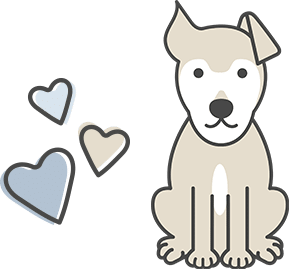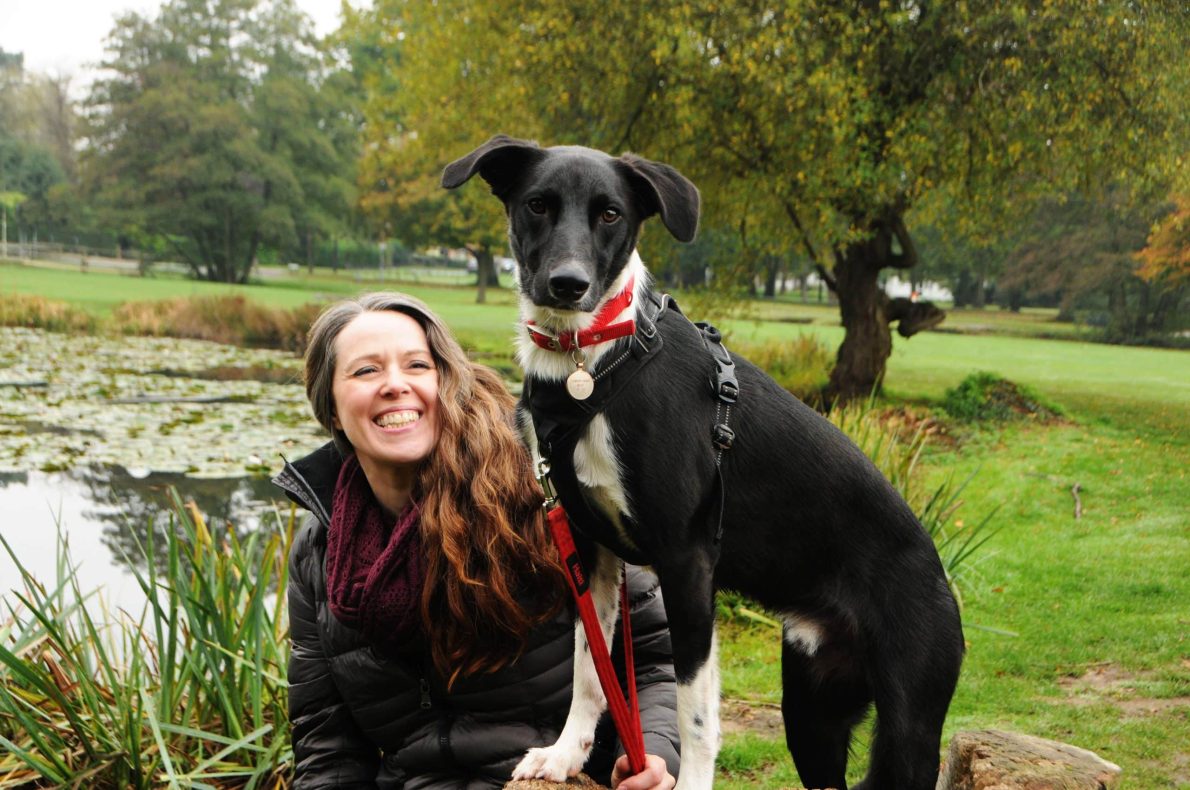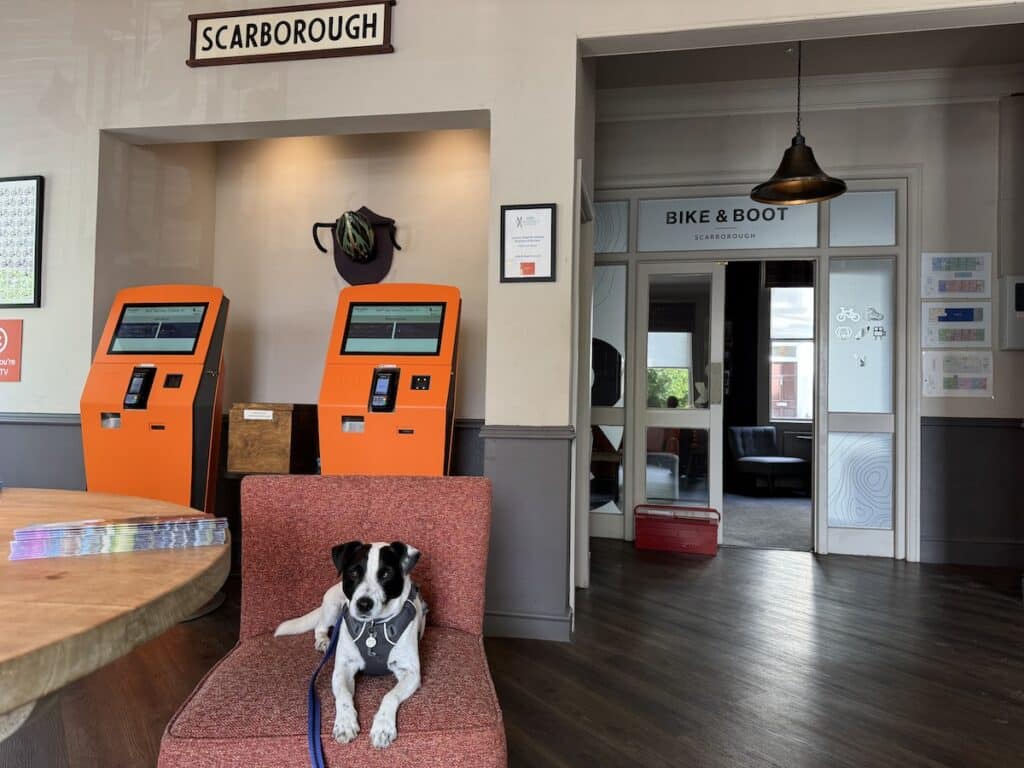When you’re thinking of getting a dog, one of the top questions that springs to mind is, ‘Who will take them out every day?’
But dog trainer Niki French is challenging the belief that every dog thrives on a daily walk.
She’s the author of Stop Walking Your Dog, a training book explaining why sometimes a walk can be the last thing your dog needs.
Niki has worked with dogs and pet parents who have benefited from skipping the daily walk.
As #DontWalkYourDogDay approaches on April 2nd, she shares how she came to her breakthrough way of working and alternative activities to ensure your dog has their needs met.
Hi, Niki. Tell us about you and what you do.
I’m Niki French and I’m the founder of Pup Talk Dog Training.
My goal is to help people with dogs from all kinds of backgrounds, but my heart particularly lies with those with behavioural issues.
Dogs that are nervous, anxious, and over-excitable often struggle in the outside world. I want to help them and their owners learn how to manage those emotions and enjoy life together.
What led you to work with these dogs?
I started noticing that many dogs, particularly high-energy breeds, were struggling with the outside world.
There’s a preconceived idea that if you have a dog then you must walk them multiple times a day.
However, many dogs simply don’t have the skills to be out in public and cope with their anxieties.
Owners feel stressed when they go on a walk, and guilty if they don’t, often thinking more exposure will help.
This incorrect notion led me to write my book Stop Walking Your Dog. I lay out all the things you can do to keep your dog physically and mentally healthy without walking them.
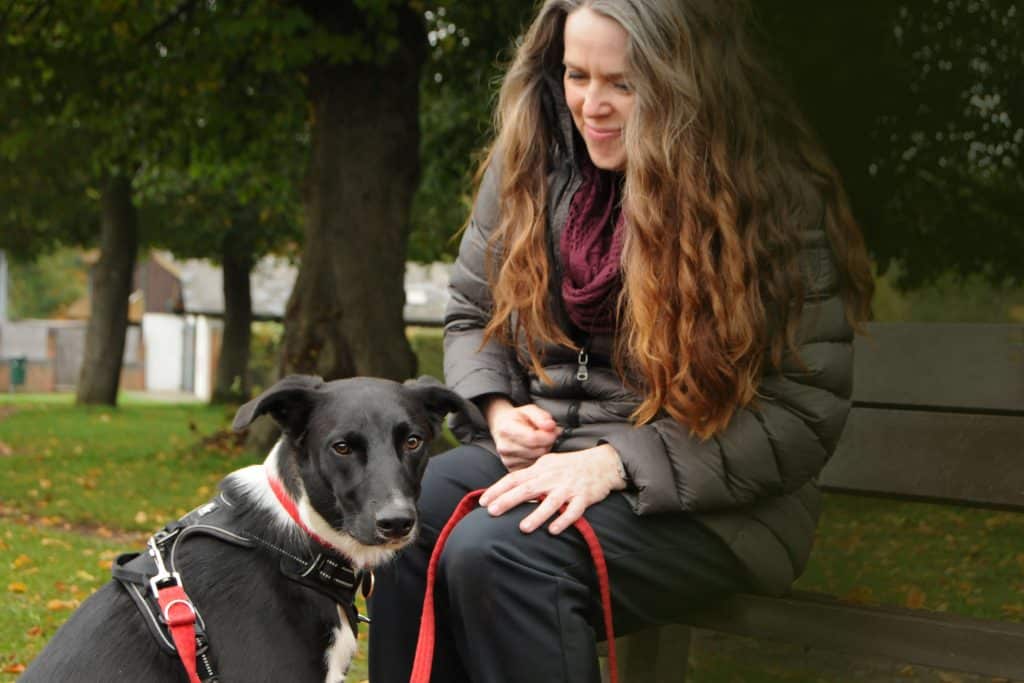
What would lead you to stop walking a dog?
Some clients have dogs that pull like trains, and even if they’re only 10 kilos, a sudden jerk could really injure you.
Barking and lunging at other dogs or people is another sign of anxiety. Or maybe they plop down like a pancake refusing to move.
Some more obvious signs include trembling or cowering, with a less obvious sign being the refusal of treats while on a walk. It could be something as simple as running away each time you pick up their lead.
You know your dog best and over time will come to recognise patterns.
What can we do instead of walking?
For many dogs, walks are the highlight of their day. The exercise, fresh air, and sunshine are great for us too!
But if it’s not right for your dog, there are other options.
In even the smallest room of your house, I could show you 10-15 games to keep them occupied. It doesn’t have to be difficult or require fancy gadgets!
You can use training games, toys, or food allowances. Try snuffle mats, toy puzzles, or hiding treats around the house. Move it around the house or take it outside into the garden.
Perhaps go to a friend’s quiet garden or take a trip to a quiet beach for a swim! The key is finding ways to keep them exercised while avoiding their triggers.
You’ll likely spend less time with games than you would with walking without ever leaving your home!
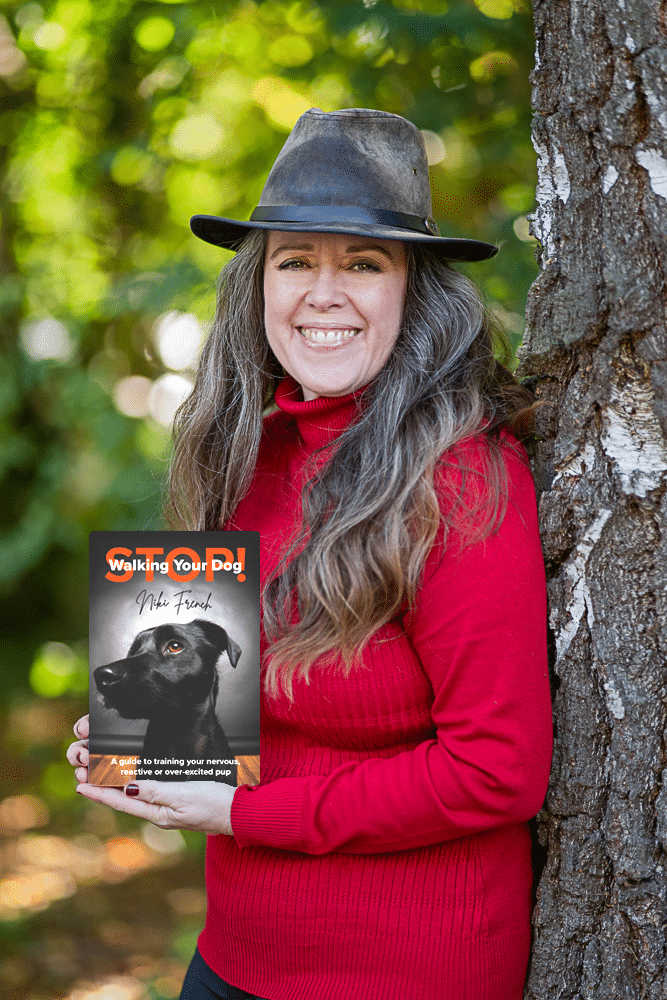
Is reducing daily walks better for some types of dog than others?
I know many people think the lockdown was harmful to dogs, especially puppies, but I don’t think it was as disastrous as is often portrayed.
While puppies couldn’t necessarily go to training or classes, it was actually quite beneficial for them.
It’s more important that they have fewer positive experiences than too many poor ones and that we open up their world slowly and in the right way.
At any point in their lives, dogs can revert back to previous behaviours.
Maybe there was a scary event that set them back, a big life change, or perhaps they’re getting older.
Issues can crop up at any point, in your dog’s life and yours, that require you to shift gears.
Having a toolset to pull from when you’re going through these times will keep your dog engaged and you less stressed.
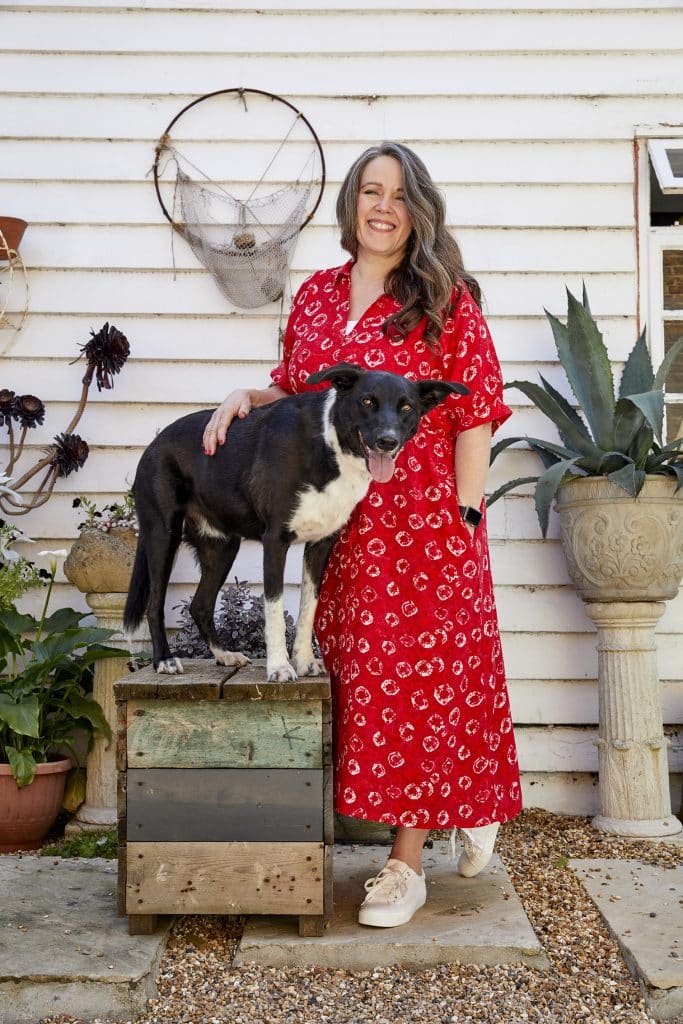
What impact have you seen by not walking dogs?
I have an example in my book of a family that decided to stop walking their dog entirely.
She had a young, energetic Collie that she stopped walking completely for over three months. During that time, she built up games at home, in the garden, and in the alleyway behind their house.
It’s now more than a year later, and she’s shared photos and videos of their dog going on holiday, playing at campsites, swimming at beaches, and going to friends’ houses!
While walking, she was unable to get past her anxieties.
But by taking a break and building up those skills at home, she can now have a great, normal dog life and her entire world has opened up.
It can be life-changing for both the family and the dog and complete freedom can come from simple changes.
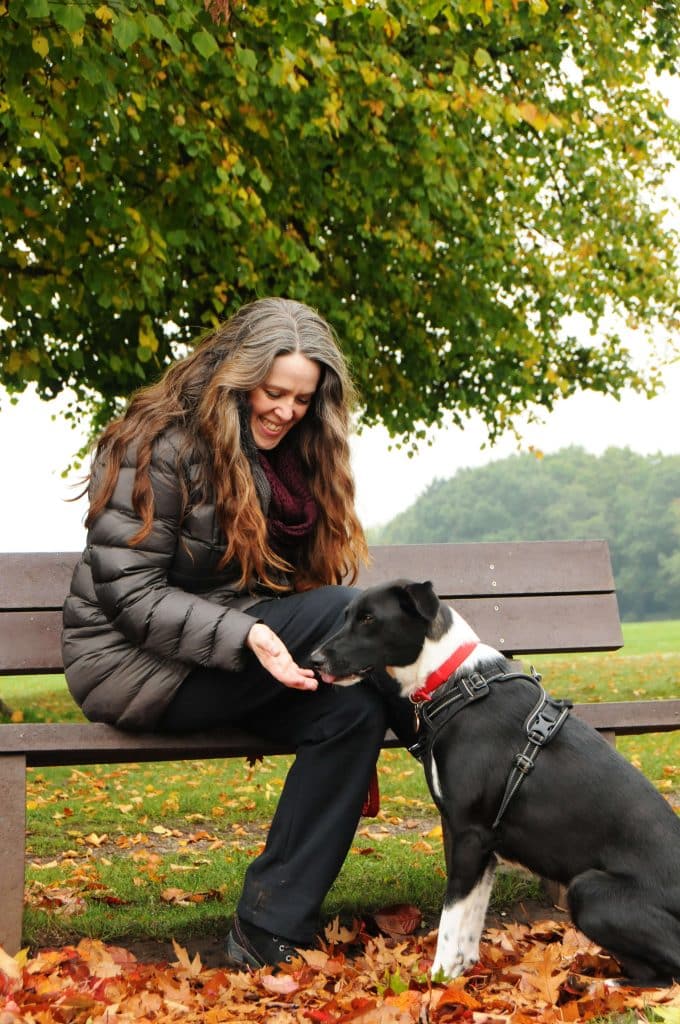
Tell us about Don’t Walk Your Dog Day
April 2nd is Don’t Walk Your Dog Day and it’s all about looking at the reasons people may not want to walk their dogs.
While most people absolutely should walk their dogs, this dialogue will help alleviate some of the guilt and stress of those who can’t.
I also want to open the floor to ideas for games and toys, while allowing others to share their experiences.
Join in the conversation on social media using the hashtag #dontwalkyourdogday
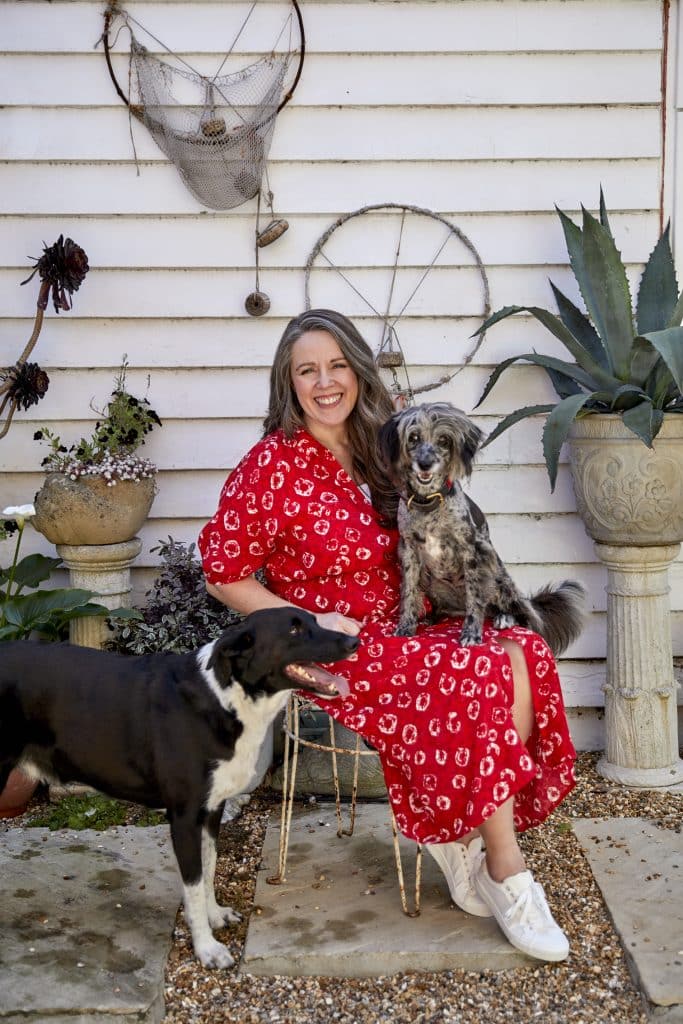
Where to find Niki
Niki’s Website: https://puptalk.co.uk/
Learn more about Don’t Walk Your Dog Day: https://go.puptalk.co.uk/awareness-day/
Buy Stop Walking Your Dog: https://go.puptalk.co.uk/stopwalkingyourdog/
Join Niki’s Facebook Group: https://www.facebook.com/groups/677211352721441/
Follow her on Instagram: https://www.instagram.com/puptalk101/
If you enjoy learning about training and inspiring animals, you might like to read…
How Bella inspired Sarah Jones from My Anxious Dog to support other shy dog owners
Why does my dog chase things with prey drive expert Tracey McLennan
Jo Sellers explains how her dog Reba led her to support home alone dogs

